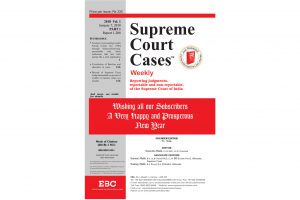Civil Procedure Code, 1908 — S. 9-A [as inserted by CPC (Maharashtra Amendment) Act, 1977]: Objection as to jurisdiction to entertain suit, to be decided by the court as a preliminary issue under S. 9-A. The word “jurisdiction” in S. 9-A, does not include issue of bar of limitation. The word “jurisdiction” in S. 9-A is qualified with the expression “to entertain the suit”. Both the said expressions when taken together give the meaning that court should have power or inherent jurisdiction to receive suit for consideration on merits. Meaning to be given to “jurisdiction to entertain” in S. 9-A is a narrow one as to maintainability. It is only the competence of the court to receive a suit for adjudication which is covered under S. 9-A. In a case barred by limitation, court possesses jurisdiction to decide that issue. Where court has no jurisdiction, it cannot decide that issue on merits at all. Thus, question of limitation in no case can be said to be a question of jurisdiction of court in the context of S. 9-A. Issue of limitation, therefore, cannot be decided as a preliminary issue of jurisdiction under S. 9-A. Kamalakar Eknath Salunkhe, (2015) 7 SCC 321, held, is correctly decided and is affirmed. Foreshore Coop. Housing Society Ltd., (2015) 6 SCC 412 which took a contrary view, overruled. [Nusli Neville Wadia v. Ivory Properties, (2020) 6 SCC 557]
Consumer Protection — Services — Medical practitioners/services — Medical negligence — Determination of: The burden of proof is on complainant to establish medical negligence. The cause of action arises after damage has been caused. The injury caused to victim should be sufficiently proximate to breach of duty by medical practitioner. He would be liable only when his conduct falls below the standards of a reasonably competent practitioner in his field. The applicable principles also explained in detail. [Maharaja Agrasen Hospital v. Rishabh Sharma, (2020) 6 SCC 501]
Criminal Procedure Code, 1973 — S. 439 — Rejection of bail — When warranted — Implication in large number of heinous crimes: In this case, petitioner’s husband was accused in murder case and 45 other cases of heinous crime were pending against him. Hence, held, his bail was rightly rejected by High Court. [Sunita Bhati v. State of U.P., (2020) 6 SCC 556]
Election — Delimitation/Reservation of Constituencies — Nature and Scope: In this case, delimitation notification by State Government for creating 9 out of 4 districts without following procedure therefor, that is, without any research or proposal by Delimitation Commission therefor, was held, illegal. [Dravida Munnetra Kazhagam v. State of T.N., (2020) 6 SCC 548]
Human and Civil Rights — Humanitarian and Natural Disasters, Epidemics and Pandemics — Visakhapatnam LG Polymers Gas leak disaster: In this case, there was a criminal case and High Court passed directions for complete seizure or sealing of plant/premises. The Supreme Curt observed that the interim order was issued regarding safety measures and liberty was granted to raise other issues. [LG Polymers (India) (P) Ltd. v. State of A.P.,(2020) 6 SCC 622]
Service Law — Pension — Entitlement to pension: In this case, the Supreme Court considered the issue that whether the employees opting for voluntary retirement under SBI-VRS 2000, are entitled to pension under SBI Employees’ Pension Fund Rules, 1995. The Court held that the voluntary retirement scheme (VRS) was not floated by SBI on its own volition but was pursuant to exercise undertaken by IBA, as approved by Government, in view of recent developments in modern technology, need to have new skill, and rationalize manpower, whereunder it was provided that pension would be granted after completion of 15 yrs of service, as special measure. Further held, once it approved the Scheme, SBI being instrumentality of State under Art. 12 of the Constitution was bound by it and could not wriggle out of its obligation by claiming shelter of the SBI Employees’ Pension Fund Rules, 1995 which provided for 20 yrs of qualifying service by not amending the said Rules. [SBI v. Radhey Shyam Pandey, (2020) 6 SCC 438]

